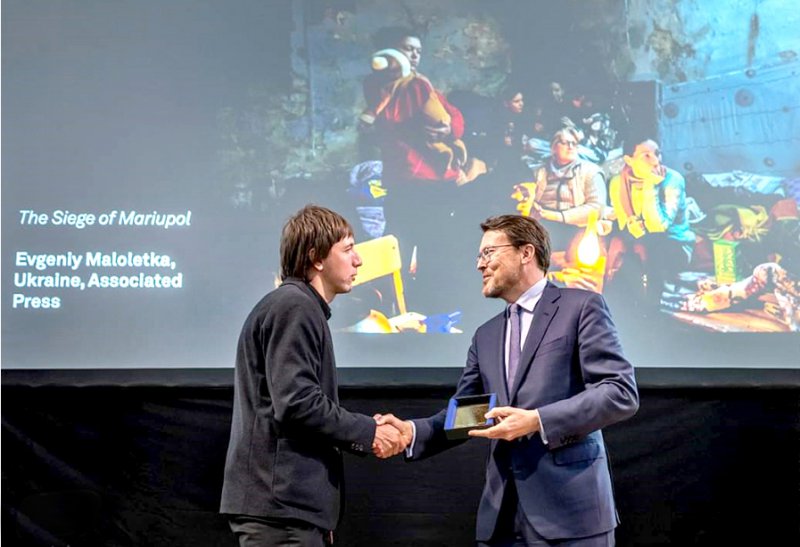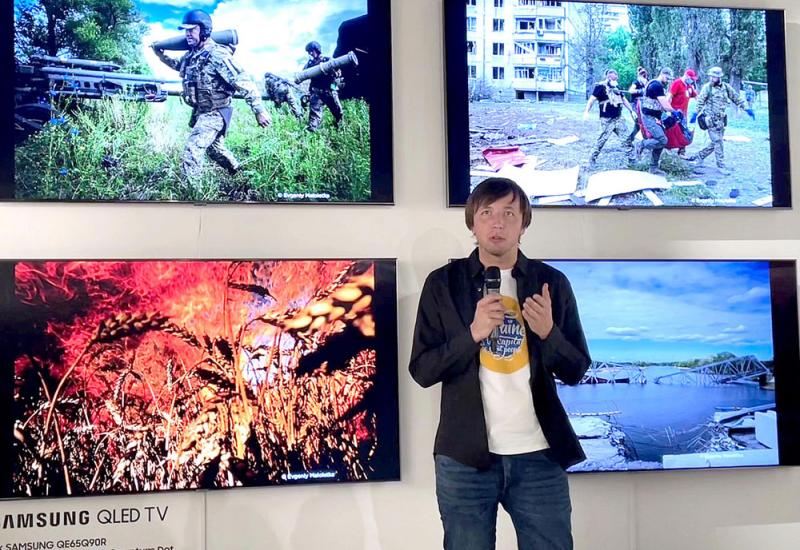The most prestigious awards in the field of journalism - the Pulitzer Prize and the World Press Photo Award - were given to KPI graduate 2010 photographer Yevhen Malolietka for his photos from Mariupol.
"Photos that changed the perception of the war in the West" - this is how the video materials of Yevhen Malolietka and Mikhail Chernov, journalists from the Associated Press (AP), are characterized. For 20 days, they worked under fire to show the world the real "operation" of the russian army: destroyed buildings, dying children, mass graves, and the bombing of a maternity hospital. We worked under constant threat to our lives. And they miraculously escaped from the encirclement when it was no longer possible to transmit information to the editorial office, and all available memory media were filled to capacity.
"These are world stars who, through their titanic work in their field, have reached out with the truth about the war," the journalists' colleagues said. "The jury was impressed by the way the Ukrainian photographer risked his life to gain access to visual images of the actions of Russian militants and make these images available to the world. This story will stand as a collection of striking testimonies of an ongoing war," World Press Photo informs. "It would be better for all of us not to have this shameful war and save thousands of lives," Yevhen reflected during the award ceremony.
Yevhen's photos are not only about Mariupol, there are many of his photos from Bakhmut, Avdiivka, flooded Kherson and other places. In early June, there was a pre-premiere screening of the documentary Twenty Days in Mariupol, where Yevhen Malolietka is one of the authors. In the film, he recalls March 1, his birthday: "We shared some canned food and some stale bread. I wished us all to survive."
In May of this year, the Pulitzer Prize for Public Service was awarded to AP video journalist Mstislav Chernov, photographer Yevhen Malolotka, video producer Vasilisa Stepanenko and reporter Laurie Hinnant. "AP journalists have been doing brave and important work in Ukraine throughout the war, focusing in particular on the human cost of the conflict. From dispelling Russian disinformation to facilitating the creation of a humanitarian corridor, their work has been an incredible public service, and we are thrilled to see it recognized by the Pulitzer Prize Committee," said Julie Pace, AP Senior Vice President and Executive Editor.

According to the deputy mayor of Mariupol, the world's attention to these works forced the Russians to open an evacuation route, saving thousands of civilian lives.
For reference: The Pulitzer Prize recognizes the best in journalism, as well as in eight artistic categories dedicated to books, music and theater. The winner in the category "Public Service" receives a gold medal.

